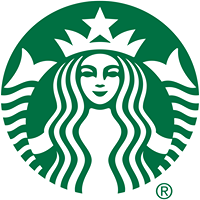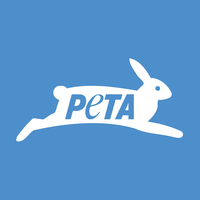Starbucks Ditches Non-Dairy Milk Surcharge: A Bold Move for Inclusivity and Sustainability
November 2, 2024, 4:08 am
Starbucks is turning a new leaf. The coffee giant has announced it will eliminate the surcharge for non-dairy milk options in the United States and Canada, effective November 7. This decision coincides with the launch of its seasonal holiday menu, marking a significant shift in the company’s approach to customer preferences and sustainability.
For years, Starbucks charged extra for non-dairy milk alternatives like almond, soy, coconut, and oat milk. This surcharge, which could reach up to 90 cents in some cities, has drawn criticism from consumers and activists alike. The company’s decision to scrap this fee is a response to growing demand for plant-based options and reflects a broader trend toward inclusivity in the food and beverage industry.
Starbucks has long been a pioneer in offering non-dairy options, introducing soy milk back in 1997. However, while other markets, including the UK and France, have already eliminated the surcharge, the U.S. remained an outlier. This change signals a recognition of the evolving landscape of consumer preferences, particularly among younger generations who are increasingly leaning toward plant-based diets.
The decision comes on the heels of a disability discrimination lawsuit against Starbucks. Customers argued that for many, choosing non-dairy milk is not merely a preference but a necessity due to lactose intolerance or dairy allergies. In fact, approximately 12% of Americans are lactose intolerant, and over 5% have a milk allergy. This demographic shift highlights the need for businesses to adapt to the diverse needs of their customers.
Starbucks CEO Brian Niccol, who took the helm in August, frames this move as part of a broader strategy to revitalize the brand. He emphasizes the importance of customization in the Starbucks experience. By removing the surcharge, the company aims to simplify the ordering process and make it more accessible for everyone. This aligns with Niccol’s vision of returning to the core values that have always set Starbucks apart: a welcoming atmosphere and high-quality, handcrafted beverages.
The timing of this announcement is crucial. Starbucks has faced financial challenges recently, with global sales dropping by 6% in the last quarter. The company is under pressure to regain customer loyalty and improve its bottom line. By eliminating the non-dairy surcharge, Starbucks hopes to attract a wider customer base and encourage more people to choose plant-based options.
This decision is not just about customer satisfaction; it also aligns with Starbucks’ sustainability goals. The company has set a target to achieve net-zero emissions by 2050 and aims to halve its carbon footprint by the end of this decade. Cow’s milk has been identified as the largest contributor to Starbucks’ carbon emissions. Encouraging customers to switch to non-dairy alternatives is a step toward reducing the company’s environmental impact.
The popularity of plant-based milk is on the rise. In 2023, plant-based milk accounted for 15% of the overall milk market in the U.S. More than 44% of Americans have purchased non-dairy milk, and once they try it, 79% buy it again. This trend is particularly pronounced among younger consumers, with Gen Z expressing a preference for plant-based options and feeling embarrassed to order conventional dairy in public.
Activist groups like PETA have long campaigned against the non-dairy surcharge, arguing that it penalizes customers who choose more sustainable options. Their advocacy has included protests and shareholder proposals aimed at eliminating the surcharge. The decision to remove the fee is a significant victory for these groups and reflects a growing awareness of the ethical implications of food choices.
Starbucks’ move is also a response to changing consumer attitudes toward dairy. Recent data shows that dairy consumption in the U.S. has hit an all-time low. As more people embrace plant-based diets, companies must adapt to stay relevant. By making non-dairy milk free, Starbucks positions itself as a leader in the coffee industry, catering to the demands of a more environmentally conscious and health-focused consumer base.
The elimination of the non-dairy surcharge is just one part of a larger strategy to enhance the customer experience. Starbucks is also reintroducing popular features like condiment bars and Sharpies for personalization. These changes aim to create a more engaging and enjoyable atmosphere for customers, reinforcing the idea that Starbucks is a place for community and connection.
In conclusion, Starbucks’ decision to eliminate the non-dairy milk surcharge is a bold and necessary step toward inclusivity and sustainability. It reflects a growing recognition of diverse consumer needs and the importance of adapting to changing market dynamics. As the company navigates financial challenges and strives to regain customer loyalty, this move could prove to be a game-changer. By embracing plant-based options and simplifying the ordering process, Starbucks is not just serving coffee; it’s serving a vision for a more inclusive and sustainable future.
For years, Starbucks charged extra for non-dairy milk alternatives like almond, soy, coconut, and oat milk. This surcharge, which could reach up to 90 cents in some cities, has drawn criticism from consumers and activists alike. The company’s decision to scrap this fee is a response to growing demand for plant-based options and reflects a broader trend toward inclusivity in the food and beverage industry.
Starbucks has long been a pioneer in offering non-dairy options, introducing soy milk back in 1997. However, while other markets, including the UK and France, have already eliminated the surcharge, the U.S. remained an outlier. This change signals a recognition of the evolving landscape of consumer preferences, particularly among younger generations who are increasingly leaning toward plant-based diets.
The decision comes on the heels of a disability discrimination lawsuit against Starbucks. Customers argued that for many, choosing non-dairy milk is not merely a preference but a necessity due to lactose intolerance or dairy allergies. In fact, approximately 12% of Americans are lactose intolerant, and over 5% have a milk allergy. This demographic shift highlights the need for businesses to adapt to the diverse needs of their customers.
Starbucks CEO Brian Niccol, who took the helm in August, frames this move as part of a broader strategy to revitalize the brand. He emphasizes the importance of customization in the Starbucks experience. By removing the surcharge, the company aims to simplify the ordering process and make it more accessible for everyone. This aligns with Niccol’s vision of returning to the core values that have always set Starbucks apart: a welcoming atmosphere and high-quality, handcrafted beverages.
The timing of this announcement is crucial. Starbucks has faced financial challenges recently, with global sales dropping by 6% in the last quarter. The company is under pressure to regain customer loyalty and improve its bottom line. By eliminating the non-dairy surcharge, Starbucks hopes to attract a wider customer base and encourage more people to choose plant-based options.
This decision is not just about customer satisfaction; it also aligns with Starbucks’ sustainability goals. The company has set a target to achieve net-zero emissions by 2050 and aims to halve its carbon footprint by the end of this decade. Cow’s milk has been identified as the largest contributor to Starbucks’ carbon emissions. Encouraging customers to switch to non-dairy alternatives is a step toward reducing the company’s environmental impact.
The popularity of plant-based milk is on the rise. In 2023, plant-based milk accounted for 15% of the overall milk market in the U.S. More than 44% of Americans have purchased non-dairy milk, and once they try it, 79% buy it again. This trend is particularly pronounced among younger consumers, with Gen Z expressing a preference for plant-based options and feeling embarrassed to order conventional dairy in public.
Activist groups like PETA have long campaigned against the non-dairy surcharge, arguing that it penalizes customers who choose more sustainable options. Their advocacy has included protests and shareholder proposals aimed at eliminating the surcharge. The decision to remove the fee is a significant victory for these groups and reflects a growing awareness of the ethical implications of food choices.
Starbucks’ move is also a response to changing consumer attitudes toward dairy. Recent data shows that dairy consumption in the U.S. has hit an all-time low. As more people embrace plant-based diets, companies must adapt to stay relevant. By making non-dairy milk free, Starbucks positions itself as a leader in the coffee industry, catering to the demands of a more environmentally conscious and health-focused consumer base.
The elimination of the non-dairy surcharge is just one part of a larger strategy to enhance the customer experience. Starbucks is also reintroducing popular features like condiment bars and Sharpies for personalization. These changes aim to create a more engaging and enjoyable atmosphere for customers, reinforcing the idea that Starbucks is a place for community and connection.
In conclusion, Starbucks’ decision to eliminate the non-dairy milk surcharge is a bold and necessary step toward inclusivity and sustainability. It reflects a growing recognition of diverse consumer needs and the importance of adapting to changing market dynamics. As the company navigates financial challenges and strives to regain customer loyalty, this move could prove to be a game-changer. By embracing plant-based options and simplifying the ordering process, Starbucks is not just serving coffee; it’s serving a vision for a more inclusive and sustainable future.

